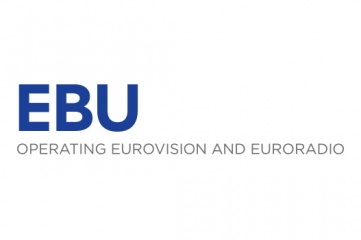Host City 2019, the largest meeting of sports, business and cultural events, is delighted to be working with Strategic Partner and Silver Sponsor, the European Broadcasting Union (EBU) – the world’s leading alliance of public service media.
We spoke with Franck Choquard, Head of Content & Servicing at Eurovision Sport, which is a division of the EBU. With contracts with 25 Federations representing 20 sports, Eurovision Sport’s coverage equates to 30,000+ hours broadcast from 200+ events a year, 75 per cent of which feature women-only or mixed events – including 30 European Championships and 30 World Championships.
Host City: What do you see as the most pressing issues facing the broadcasting sector today?
Franck Choquard: As for any other actor within the entertainment industry, the overall broadcast sector is today facing a “digital revolution” in the way the various audiences are consuming content.
It is no longer possible to have one single linear TV approach to reach them all audiences, we need to adapt our offering to the various communities we have – using the right platform (linear TV, OTT, social media etc…) with the right content.
More than ever, within this increasingly fragmented offering, it is important for national broadcasters to understand that editorial enrichment and targeted content delivery are key drivers for success.
Host City: How would you describe the main objectives of Eurovsion Sport’s digital strategy?
Franck Choquard: Our content strategy (we prefer this terminology than using digital), is based around two pillars:
- Offer European audiences free access to the best sporting content through our Members’ platforms, be it on linear TV or through innovative direct to fan (D2F) experiences – our Members being Europe’s leading public service media organisations
- Be the premium partner for International Federations and host cities, not only guaranteeing the widest possible audience free-to-air in Europe but also generating new and innovative business models that serve to increase their event / content value
Host City: What kind of partnerships is Eurovision Sport establishing to develop this strategy?
Franck Choquard: We are building partnerships within three dimensions to achieve this strategy:
- With our Members and Federations, working together to offer a shared promotion strategy and building common D2F (direct-to-fan) ecosystems, to better engage audience and generate additional value to all stakeholders
- With technology partners (such as Dazzl or Livelike) allowing us (and our members) to enrich fans’ engagement within their digital ecosystem
- With some of the key actors within the FAANG (Facebook, Amazon, Apple, Netflix and Alphabet) to amplify our reach and coordinate our various stakeholders’ messages
Host City: What role do you think technology can play in reducing the footprint of major events?
Franck Choquard: Technology has a key role to play in this regard. The virtualisation and possibilities that technology can develop in the near future should enable productions to have only essential staff on site (editorial, producers, journalists) while engineers and technicians will be able to operate remotely, reducing the need for working areas, power, etc. Remote operation and virtualisation will also allow the delivery of more content to publishers for them to enrich the offering to their communities.
Host City: What are your expectations of Host City 2019?
Franck Choquard: I’m looking forward to fruitful exchanges with peers and colleagues from the International Federations and Organising Committees etc. that will be present; it looks like a great line-up. It will be exciting to further discuss how the integrative approach and working better together can enable us not only to have a better common strategy to increase the value of our events, but also to build sustainable models for the future.
The European Broadcasting Union is co-producing a session at Host City 2019 on “Building better digital and sustainability strategies” at 12:10 on 27th November


